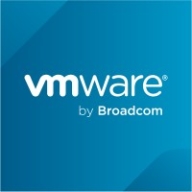

Dell RecoverPoint for Virtual Machines and VMware Live Recovery are solutions in the virtualization recovery space. Dell RecoverPoint has an advantage in pricing and support, while VMware Live Recovery is favored for its feature set and value despite higher costs.
Features: Dell RecoverPoint for Virtual Machines delivers robust data protection, rapid recovery, and continuous replication, ensuring efficient recovery points. VMware Live Recovery focuses on high availability, instant recovery, and seamless integration with VMware environments, providing advanced features that stand out in VMware-centric setups.
Room for Improvement: Dell RecoverPoint for Virtual Machines could enhance its integration with non-VMware environments and improve advanced recovery features to compete better with feature-rich solutions. It may also benefit from refining its UI for easier navigation. VMware Live Recovery might improve its cost-effectiveness and simplify the deployment process for users outside the VMware ecosystem. Additionally, reducing the complexity of integration with third-party tools could be beneficial.
Ease of Deployment and Customer Service: Dell RecoverPoint for Virtual Machines offers a simpler deployment process backed by strong customer support, facilitating quick problem resolution. VMware Live Recovery's deployment is more complex but benefits from integration with VMware tools and strong technical support channels. Dell offers a user-friendly experience, while VMware provides advantages for existing VMware infrastructure users.
Pricing and ROI: Dell RecoverPoint for Virtual Machines presents a cost-effective setup with strong ROI potential through resource efficiency and low operational overheads. VMware Live Recovery requires higher initial investment but provides comprehensive features and compatibility with VMware ecosystems, offering significant long-term benefits despite upfront costs. Dell is more immediately cost-effective, whereas VMware delivers returns in advanced feature priority environments.
| Product | Market Share (%) |
|---|---|
| VMware Live Recovery | 6.8% |
| Dell RecoverPoint for Virtual Machines | 3.7% |
| Other | 89.5% |

| Company Size | Count |
|---|---|
| Small Business | 5 |
| Midsize Enterprise | 4 |
| Large Enterprise | 6 |
| Company Size | Count |
|---|---|
| Small Business | 36 |
| Midsize Enterprise | 12 |
| Large Enterprise | 40 |
Dell RecoverPoint for Virtual Machines enables quick recovery of VMware virtual machines and allows you to efficiently test, manage and orchestrate operational backup and disaster recovery operations.
With tight integration with VMware, RecoverPoint for Virtual Machines is storage and application agnostic, with built-in automation accessible via VMware vSphere web client plug-in.
When cloud becomes a vital part of your disaster recovery strategy, RecoverPoint for Virtual Machines is also web-enabled, providing efficient replication to AWS and VMware Cloud on AWS.
RecoverPoint for Virtual Machines is available as part of Dell Data Protection Suite.
We monitor all Disaster Recovery (DR) Software reviews to prevent fraudulent reviews and keep review quality high. We do not post reviews by company employees or direct competitors. We validate each review for authenticity via cross-reference with LinkedIn, and personal follow-up with the reviewer when necessary.